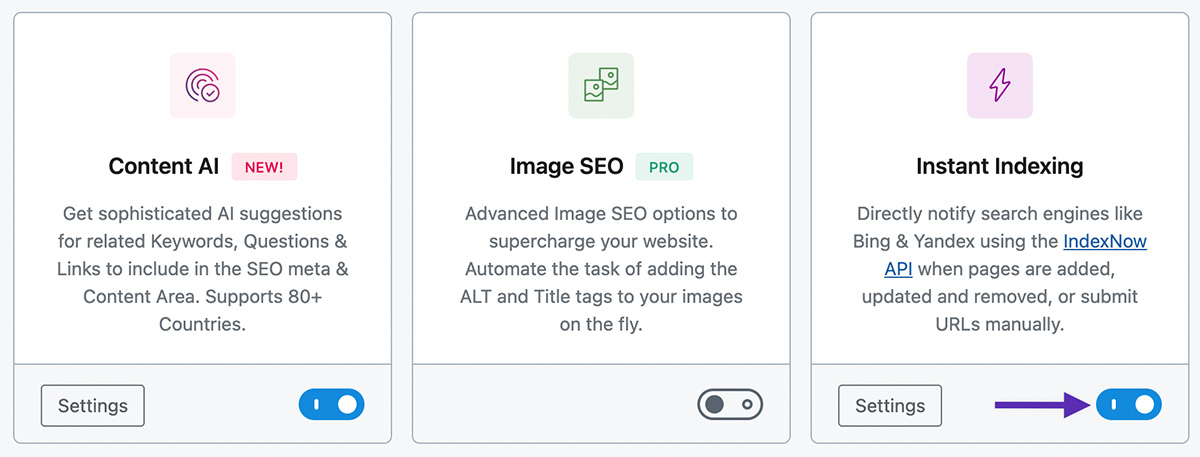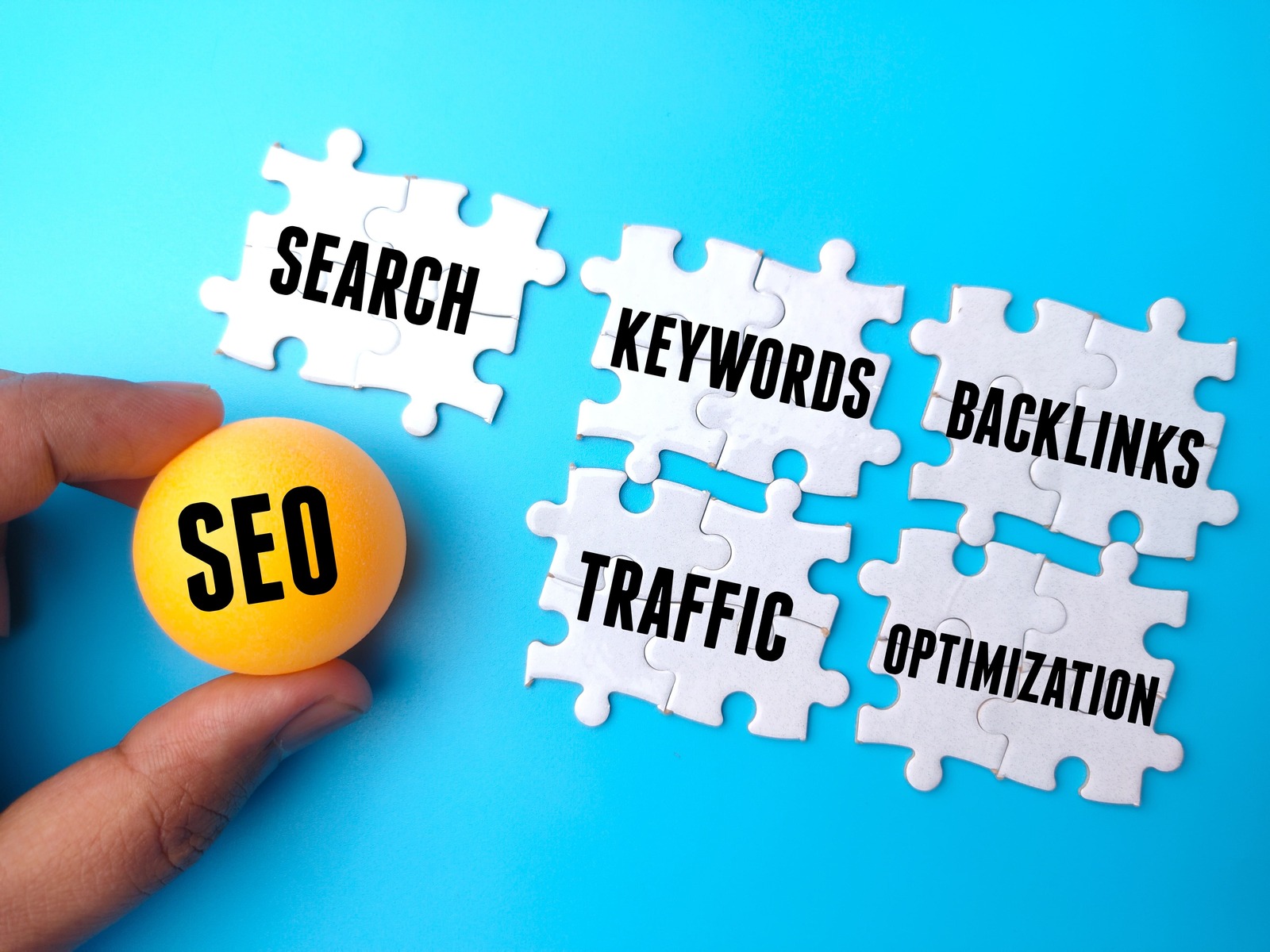Website Indexing: The Gateway to SEO Visibility
Search engine indexing is a key factor in determining a website’s visibility on the internet. Inadequately indexed pages can struggle to appear in search results, leading to reduced traffic and visibility. On the other hand, well-indexed websites with optimised content and technical SEO practices tend to achieve higher rankings and attract more organic traffic.
In this article, we will explore the importance of search engine indexing for SEO and provide strategies for improving indexing success.
Table of Contents
What Exactly is Search Engine Indexing?
Imagine entering a vast library brimming with countless books. Now, consider those books as web pages on the internet. Similar to a library, search engines must arrange and categorise these web pages to swiftly locate them when someone enters a relevant query. This is where search engine indexing plays a key role.
Search indexing refers to the process whereby search engines like Google gather information from web pages and store it in their extensive database, known as the index. The index resembles the catalogue of the aforementioned colossal library – a place where all pertinent web page details are neatly organised and poised for retrieval.
Why Does it Matter for SEO?
Visualise this: you’ve built an exceptional website with informative content and captivating visuals. However, if your website isn’t indexed by search engines, all your hard work might go unnoticed – a nightmare scenario for any website owner.
When search engines index your website, it becomes searchable and discoverable by people actively seeking what you offer. Without indexing, your website might as well be drifting aimlessly in cyberspace – invisible to potential visitors and customers.

So how does one ensure their website gets appropriately indexed?
How Search Engines Index Web Pages
Before a search engine can index your page, it needs to discover it first. This is where crawling comes into play. Search engine bots, also known as spiders or search engine crawlers, scour the internet for new pages to add to their index.
These bots start by visiting popular websites and then follow links from those sites to discover new ones. It’s like a never-ending trail of breadcrumbs leading them through the vast expanse of the World Wide Web.
But don’t worry if your site isn’t the most popular one out there. Eventually, these bots will find their way to you! Just be patient and keep creating valuable content that can grab their attention.

Once a search engine bot discovers your page, it takes a snapshot of it and adds it to its index. Think of this index as a massive library filled with billions of web pages from all around the world.
The purpose of indexing is to organise all this information in a way that makes it easy for search engines to retrieve relevant results when someone types in a search query. It’s like having a super-efficient librarian who can find you exactly what you’re looking for in no time!
So, when someone searches for something related to your website, the search engine looks at its index and retrieves the most relevant pages based on various factors like keywords, relevance, and popularity.
Additional resources: File types indexable by Google
How Google Search indexes pages
Factors Affecting Indexing Timeline
Now that we know how indexing works, let’s talk about why it might take some time for your website to get indexed.
Site Popularity
Firstly, popularity plays a role in how quickly your site gets indexed. If you have a well-known website with lots of traffic and backlinks, search engines are more likely to prioritise your pages for indexing. On the other hand, when you first launch a new website, you may face a delay in getting indexed as search engines take time to trust and prioritise them. So don’t panic if your freshly baked website doesn’t get indexed right away. Focus on producing valuable content, optimising your pages, and building backlinks to establish authority in the eyes of search engines.
Frequency of Updates
Secondly, the frequency of updates matters too. If you regularly update your site with fresh content, search engines will crawl it more frequently to check for those updates. So keep those blog posts coming!
Technical Problems
Sometimes, websites face technical difficulties that hinder their indexing progress. These can range from server issues to broken links or coding errors. Search engine bots are smart, but they can still encounter obstacles along the way. If you suspect that technical glitches may be slowing down the indexing process for your site, head to your Google Search Console and review the “Indexing > Pages” report for troubleshooting problems.
How to Get Your Pages Indexed Faster
To accelerate the indexing of your pages, you can follow several strategies recommended by SEO experts. Here are 10 tips to improve search indexation:
1. Review and Optimise the Robots.txt File
Review your robots.txt file to make sure you are not blocking any page that you want search engines to index. Test your robots.txt file using the Google Search Console Robots.txt Tester tool, and the Bing Robot.txt Tester Tool.
2. Use Instant Indexing Plugins
Consider using tools like the Rank Math instant indexing plugin to quickly notify Google about your new pages and get them noticed faster.

3. Optimise Site Quality and Crawl Budget
Crafting high-quality, unique content, and using strategic keywords, all increase the likelihood of quick indexing by Google and Bing. These factors help search engines understand what your web page is all about and determine its relevance to specific queries.
Tips from Google:
- Look at your site as a searcher would. If you did a search, would you be happy with your site as a result?
- Does your site use keyword stuffing? If you want your site to rank highly for particular keywords, make sure your site includes unique, high-quality content related to those keywords.
Tips from Bing:
- Focus on creating unique, rich, and engaging content, emphasising user relevance over search engine optimisation.
- Make content easily navigable and avoid embedding critical information within images or videos.
4. Audit Your Content and Avoid Duplications
Google says: “When Google indexes a page, it determines the primary content of each page. If Google finds multiple pages that seem to be the same or the primary content very similar, it chooses the page that, based on the factors (or signals) the indexing process collected, is objectively the most complete and useful for search users, and marks it as canonical. The canonical page will be crawled most regularly; duplicates are crawled less frequently in order to reduce the crawling load on sites.“
Therefore, you want to make sure that your website presents clear, distinct, and comprehensive content across its pages. Ensuring uniqueness and relevance in your pages’ primary content helps Google and Bing determine the most valuable and complete source for users. This not only aids in designating the preferred canonical page but also encourages more frequent crawling of this primary content, enhancing its visibility in search results.
5. Strong Internal Linking and Backlinks
Create strong internal links, preferably linking indexed pages with the ones that are not yet indexed. Additionally, building high-quality backlinks from reputable websites is another important step. Why? Because that can help crawlers to identify your page quicker.
Tips from Google:
- Review your outgoing links. Where do those links go? Do they lead visitors to good information on your site or simply to more links?
- Prioritise links that enhance visitor experience by guiding them to high-quality content, rather than solely catering to search engines.
- Check for hidden links on your site, often intended only for search engine web-crawlers, and make sure they’re visible and useful to visitors.
- Avoid buying links or engaging in link exchange programs that offer no value to visitors.
- Aim for genuine links where other site owners find your content useful and relevant, linking to your site organically.
- Steer clear of links solely intended for search engine bots (Googlebot) and spamming your link across the Internet.
- Refrain from participating in link schemes that require linking to unfamiliar sites in exchange for backlinks.
Tips from Bing:
- Encourage organic links to your site by creating unique, high-quality content.
- Ensure all pages link to discoverable and crawlable pages, limit the number of links on a page, and use rel=”nofollow” for paid or advertisement links.
- Avoid abusive link schemes and prioritise authentic, organic link-building.
6. Submit Sitemap and Use Ping Functionality
Ensure that your sitemap only contains relevant pages with 200-code responses, canonical versions, and frequently updated pages to improve indexation times. Submit your website to search engines and use ping functionality to notify search engine bots about your new content.
7. Make Sure Your Website Is Responsive
Google primarily uses the mobile version of your site for indexing and ranking. They say that having a mobile version of your pages isn’t mandatory for your content to appear in Google’s Search results, but it’s highly advisable.
8. Utilise HTML Tags & Semantic Markup
Leverage HTML tags effectively for titles, descriptions, and structured data. Use semantic markup like Schema.org in JSON-LD or Microdata format, ensuring HTML elements and alt attributes are descriptive and accurate.
9. Use Social Bookmarking Sites
Social bookmarking can be used to improve website indexing in several ways. When a site is bookmarked on a social bookmarking site, a link is made and indexed by search engines, which earns credibility with search engines. Content that is bookmarked and voted for a lot by users on social bookmarking sites tends to show up higher in search engine results. Additionally, submitting your website to social bookmarking websites can help it get found and indexed faster by search engines, as the search engine spiders index popular social bookmarking sites regularly. This can lead to rapid indexing of your website.
By implementing these strategies, you can improve the speed at which your pages are indexed by search engines, ultimately enhancing your website’s online visibility and performance.
10. Review Your Website Indexing Status
It’s highly advisable to periodically review your page indexing status through Google Search Console. This practice allows you to identify and rectify any potential errors that might hinder your pages from being crawled and indexed effectively.

By staying vigilant and regularly monitoring your website’s indexing status, you can promptly address any issues that may arise and optimise your site’s overall performance on search engines.
Why Is My Website Not Indexed?
Google says: “Indexing isn’t guaranteed; not every page that Google processes will be indexed. Indexing also depends on the content of the page and its metadata. Some common indexing issues can include:
- The quality of the content on page is low
- Robots
metarules disallow indexing - The design of the website might make indexing difficult”
In this insightful episode of the Search Off the Record podcast, the Google team delves into the tools and reports offered by Google Search Console. Tune in to gain insights into why your website or page might not be indexed, exploring both technical and quality-related perspectives.
Advanced Indexing Strategies
Indexing Multimedia Content
Optimising images and videos for search engine indexing is essential for enhanced visibility. Using descriptive filenames, alt tags, and captions rich in relevant keywords can significantly improve the indexation of multimedia content. Employing video schemas helps search engines understand the context of videos for better indexing.
Voice Search and its Impact on Indexing
Voice search has emerged as a prominent aspect affecting indexing. Optimising content to align with voice search queries involves a conversational tone and long-tail keywords. Structuring content in question-and-answer formats and providing succinct, informative responses aids in better indexing for voice search.
Monitoring and Measuring Indexing Success
Utilising tools such as Google Search Console offers valuable insights into indexing status. Analysing indexation reports, identifying crawl errors, and assessing index coverage aids in understanding a site’s indexing performance. Third-party tools complement these insights, providing a comprehensive overview of indexing health.
Additional Resources
To deepen your understanding of search engine indexing, make sure you review these detailed guidelines offered by Google and Bing:
Conclusion
Indexing is fundamental for SEO, influencing website visibility and search engine rankings. Employing effective strategies, both technical and content-oriented, is pivotal for enhanced indexing. Continuous monitoring, adaptation, and optimisation are the keys to maintaining robust indexing practices, ensuring sustained online visibility and success.

Our dedication to excellence is highlighted by our recognition from Clutch as a leading Technical SEO Company in London for 2024.
Managing Partner at Agile Digital Agency, Juan brings over two decades of digital expertise to the forefront. With a degree in Computer Sciences and a rich professional background spanning internationally acclaimed digital agencies, Juan is a seasoned digital professional. Specialising in web solutions, digital marketing, and innovation, he channels his skills to craft successful online solutions for clients.
Related
Articles


![Core Web Vitals: Learn How to Improve for Better SEO [2024]](https://www.agiledigitalagency.com/wp-content/uploads/2020/10/user-experience.jpg)